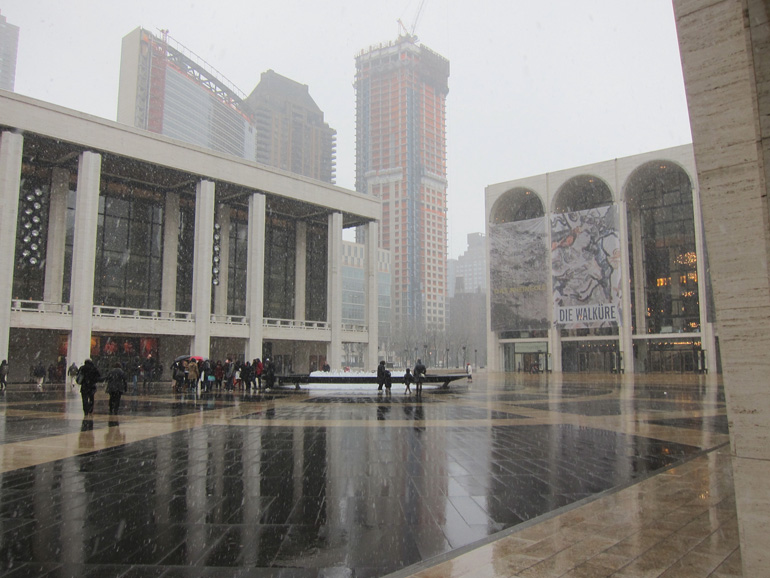Gotham Diary:
Social
21 March 2013
It occurs to me that I use the word “social” a lot, and that, as I live in New York City, some readers might well think that I have a busy social life, that I know lots of people, and that, in today’s terms, I’m highly networked. Careful readers will bear in mind the other words that I use even more often than “social”: “reading” and “writing.” If you do a lot of reading and writing, you don’t have a lot of time to spend with other people. I have, yes, met a lot of people in New York City (and elsewhere). But I know very few of them. The number of people whom I could call up to make a date for lunch (without its being a big deal) is less than ten, and, more important, I’m not particularly inclined these days to call anyone up to make a date for lunch. I’m less social, in that sense, than ever.
But I’m rarely alone. Oh, I’m alone in the apartment for most of the day, but to be alone in an apartment in a building with nearly seven hundred “units,” with windows giving out over the racket of East 86th Street in Yorkville, is by no means a manner of solitude. And I leave the apartment for routine errands, some of which take me no further than the lobby, in the course of which I may jostle against dozens of people, some of whom I know well enough to say “hello” to. If I step out of the building, dozens become hundreds. It is my belief that every one of those encounters, however glancing, is psychosocially significant. For the most part, they reinforce my sense of self, by not calling it into question. Sometimes they make me uncomfortable. Women who chirp querulously into cell phones excite my disgust: the world is not your living room. Two or three uneducated guys, lumbering along in their outer-borough grunts, chill my heart. When you think you know everything that you’re supposed to know, and assume an understanding of how the world works, your mentality is poised to slide off the human plane.
How’m I doing?, as Mayor Koch always asked. I try to be pleasant, but it’s not always easy, and my impatience is too readily tried. In good spirits, I can figure out how much interaction the clerk behind the counter is looking for. Many clerks, understandably, hate their jobs, and hate, unfortunately, their customers into the bargain. Whenever I’m at Fairway (where hateful clerks are not to be seen), I wonder how many shoppers a bagger will have to deal with on a shift. And I wonder how far the bagger has to travel to get to work: few clerks live in this neighborhood. (Which is a grave vulnerability, as shown when, in the two most recent hurricanes, local stores were closed well in advance, so that their staffs could get home before the mass transit shutdowns.) But if I think about these things, I don’t mention them. I try to treat people as decently as I’d like to be treated, but I would not call my manner “friendly.” I don’t get chummy with the doormen; I don’t discuss vacations with the butcher.
Sadly, I don’t get to look at people all that much. Ankylosing spondylitis has made it is almost impossible for me to walk with my head erect; I can do it, but it is a strain. I ought to work at it — but the list of things that I ought to do with my body is pretty long as it is. I see a lot of sidewalk, which is why taking walks is not particularly interesting. I used to read while walking, and I probably still could, but I came to see it as antisocial. It might not have been as annoying as chatting on a phone, but it was sending the same message. In fact, of course, it was a defense, a holdover from early days, when I saw the world as a hostile, or at least disapproving, place.
Before and after the Paul Taylor programs begin, and during the intermissions, I feel that I’m coursing through a galaxy of stars, each one a human life with its own ineffable history of works and days. Imagining the galaxies of audiences that have attended Paul Taylor dances over the course of the company’s near-fifty years of performance can make me light-headed and even a little bit stressed, as though too much were happening to quickly. But it is good to know that, like the stars in the sky, we hold each other in place.

